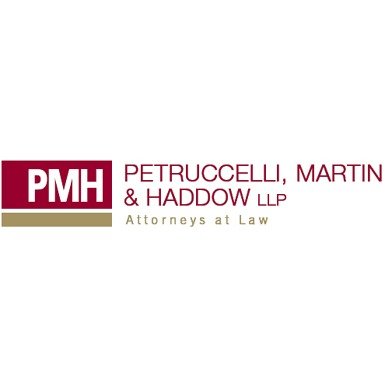Best Franchising Lawyers in Maine
Share your needs with us, get contacted by law firms.
Free. Takes 2 min.
Or refine your search by selecting a city:
List of the best lawyers in Maine, United States
About Franchising Law in Maine, United States
Franchising is a popular method for expanding a business and distributing goods or services through a licensing relationship. In Maine, as in other states, franchising agreements allow individuals or companies (franchisees) to operate businesses under the branding, systems, and guidance of an established company (franchisor), typically in exchange for fees and royalties. While the federal government provides broad guidelines through the Federal Trade Commission (FTC) Franchise Rule, each state, including Maine, may have additional legal requirements concerning how franchises are offered and operated. Understanding these laws is critical for ensuring compliance and protecting your investment in a franchise business.
Why You May Need a Lawyer
Engaging in a franchise relationship comes with significant legal and financial implications. There are many situations where legal help is beneficial, such as:
- Reviewing and negotiating franchise agreements and disclosure documents
- Understanding your rights and obligations as a franchisee or franchisor
- Dealing with disputes over royalties, territory rights, or termination of the agreement
- Ensuring compliance with both federal and Maine franchise regulations
- Addressing issues related to the sale, transfer, or renewal of a franchise
- Seeking protection from unfair franchise practices or misrepresentation
- Filing necessary registrations or handling regulatory investigations
Franchising lawyers are skilled in the complexities of franchise law and can help you avoid costly mistakes, protect your business interests, and navigate the legal process.
Local Laws Overview
Franchising law in Maine is shaped by a combination of federal and state regulations. Maine does not have its own franchise-specific registration or disclosure law, so compliance with the FTC Franchise Rule is essential. This means that franchisors must provide a Franchise Disclosure Document (FDD) to prospective franchisees before any agreement is signed or money is exchanged. Key points relevant to Maine include:
- No requirement for franchisors to register franchise offerings with the state of Maine
- Both parties are subject to general contract, business opportunity, and consumer protection laws of Maine
- Maine law governs issues such as employment, real estate, and taxation related to franchise operations within the state
- Any disputes or claims may be subject to Maine's courts, depending on the terms of the franchise agreement
- Unfair trade practices and misrepresentations can be addressed under the Maine Unfair Trade Practices Act
Because Maine relies largely on federal standards and its general state statutes, understanding both sets of regulations is important when offering, purchasing, or operating a franchise in the state.
Frequently Asked Questions
What is a franchise?
A franchise is a legal and commercial relationship between a franchisor and a franchisee. The franchisee operates a business using the franchisor's brand, system, and support, usually in exchange for ongoing fees or royalties.
Do I have to register a franchise in Maine?
No, Maine does not require registration of franchise offerings. Franchisors must, however, comply with federal regulations, including providing a Franchise Disclosure Document.
What is a Franchise Disclosure Document (FDD)?
An FDD is a comprehensive legal document that provides potential franchisees with essential information about the franchise, including its history, fees, obligations, and the risks involved. It must be provided at least 14 days before any agreement is signed.
Can a franchise agreement be negotiated?
Some aspects of a franchise agreement may be negotiable, but many franchisors use standardized contracts. A lawyer can help identify which terms can be adjusted and negotiate on your behalf.
What are common fees in franchising?
Common fees include an initial franchise fee, ongoing royalties based on sales, marketing or advertising fees, and other payments specified in the agreement.
How can legal disputes in franchising be resolved in Maine?
Legal disputes may be resolved through negotiation, mediation, arbitration, or court litigation, depending on what the franchise agreement specifies and the nature of the dispute.
Are there risks to becoming a franchisee?
Yes, risks include potential loss of investment, ongoing payment obligations, limited operational flexibility, and the possibility of disputes with the franchisor.
What protections do I have against unfair franchise practices in Maine?
Maine franchisees may have recourse under the Maine Unfair Trade Practices Act and through federal law if they experience misrepresentation or deceptive practices.
What are my rights if I want to sell or transfer my franchise?
Your rights are determined by the franchise agreement, which may set out specific conditions or require franchisor approval for any sale or transfer.
Should I use a lawyer for franchising matters in Maine?
It is highly recommended to consult a legal professional experienced in franchise law before entering any franchise relationship or if you have questions about your rights and responsibilities.
Additional Resources
Individuals or businesses seeking more information about franchising in Maine can benefit from consulting the following:
- Federal Trade Commission (FTC) - for information on federal franchise rules and consumer protections
- Maine Office of Securities - for inquiries about business opportunities and consumer protection
- Maine State Bar Association - for referrals to qualified franchise lawyers and legal resources
- International Franchise Association - for general franchising information, education, and networking opportunities
- Small Business Administration (SBA) Maine District Office - for assistance with business planning, financing, and legal basics
Next Steps
If you are considering entering into a franchise relationship or have legal concerns about franchising in Maine, take these steps:
- Research and thoroughly review the Franchise Disclosure Document and any related agreements
- Consult with an attorney who has experience in franchise law and is familiar with Maine's legal landscape
- Gather all necessary documents and make a list of your questions and concerns before your consultation
- Contact relevant state agencies or professional associations for additional guidance
- Stay informed on changes to franchise law at both the state and federal levels
Seeking legal advice early can help you avoid costly mistakes and ensure that your rights and interests are properly protected when pursuing franchising opportunities in Maine.
Lawzana helps you find the best lawyers and law firms in Maine through a curated and pre-screened list of qualified legal professionals. Our platform offers rankings and detailed profiles of attorneys and law firms, allowing you to compare based on practice areas, including Franchising, experience, and client feedback.
Each profile includes a description of the firm's areas of practice, client reviews, team members and partners, year of establishment, spoken languages, office locations, contact information, social media presence, and any published articles or resources. Most firms on our platform speak English and are experienced in both local and international legal matters.
Get a quote from top-rated law firms in Maine, United States — quickly, securely, and without unnecessary hassle.
Disclaimer:
The information provided on this page is for general informational purposes only and does not constitute legal advice. While we strive to ensure the accuracy and relevance of the content, legal information may change over time, and interpretations of the law can vary. You should always consult with a qualified legal professional for advice specific to your situation.
We disclaim all liability for actions taken or not taken based on the content of this page. If you believe any information is incorrect or outdated, please contact us, and we will review and update it where appropriate.
Browse franchising law firms by city in Maine
Refine your search by selecting a city.









